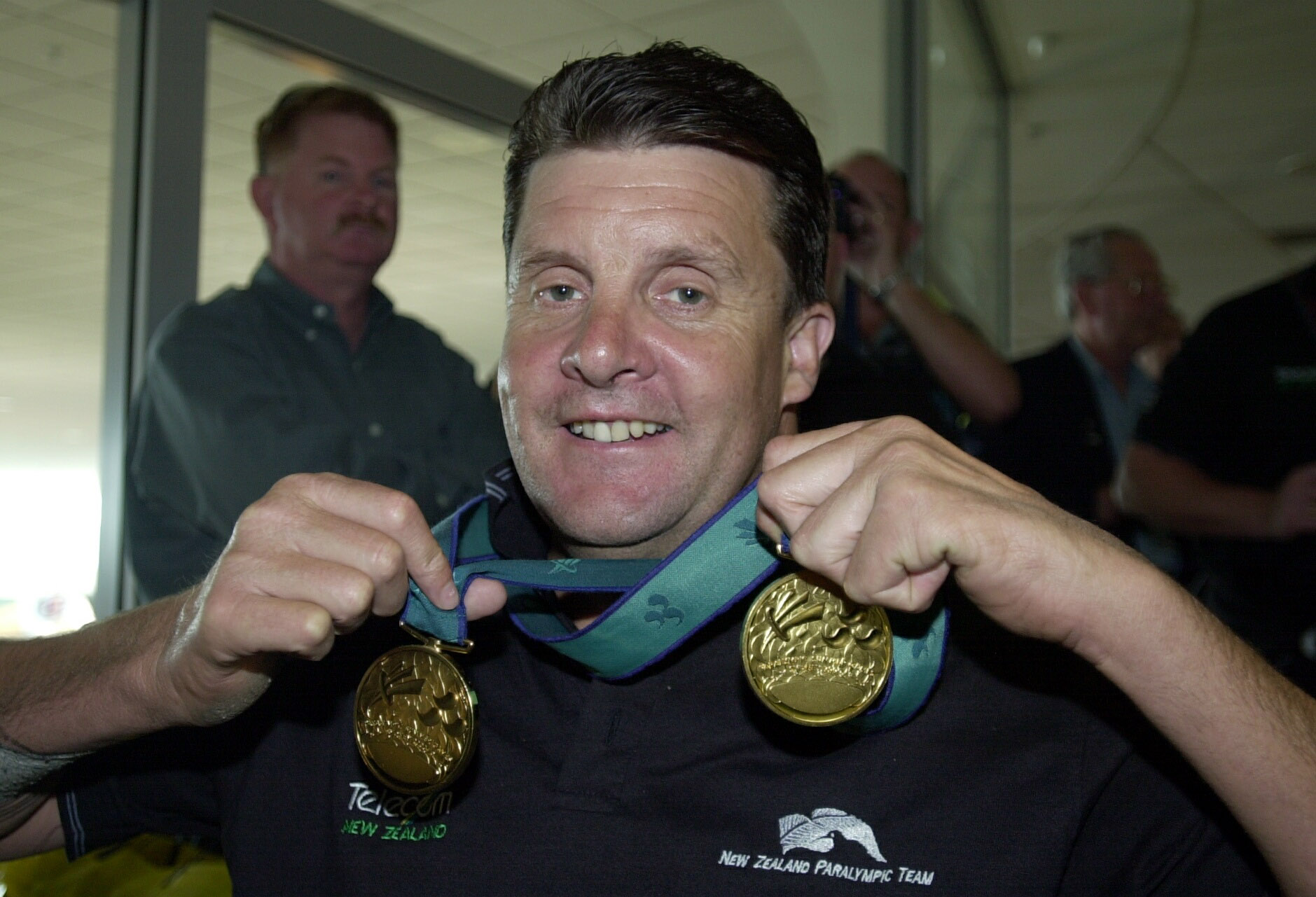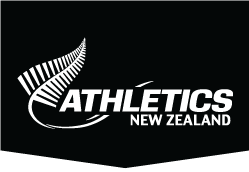News & Updates
Para Athletics World Champs Time Tunnel - Dave MacCalman

Dave MacCalman enjoyed a medal-laden career as part of the New Zealand team. Credit: (Getty Images).
In the countdown to the Paris 2023 Para Athletics World Championships next month we focus on a trio of Kiwi star performers who have excelled at past editions of the 29-year-old Champs. Today we throw the spotlight on thrower/pentathlete Dave MacCalman.
Boasting a proud record of two gold and three silver medals, there is little questioning Dave MacCalman’s status as a bona fide New Zealand Para Athletics World Championship legend.
An outstanding thrower and pentathlete, the quadriplegic athlete excelled on the international stage for 15 years appearing at four Paralympic Games and establishing a reputation as one of New Zealand’s most formidable Para athletes.
A talented schoolboy basketballer, the 6ft 5ins tall athlete earned a basketball scholarship to West Hills Community College in California. Yet his life was to change forever when at the end of his freshman year in 1980 he misjudged the depth of the water when diving into a waterhole, which resulted in serious spinal injuries.
Post-accident Dave immersed himself in basketball coaching and he later successfully led able-bodied men’s and women’s teams to New Zealand titles. Throughout much of the 1980s Dave also dabbled in Para athletics as a thrower and track athlete and in 1989 he won selection to compete internationally at the FESPIC Games in Kobe, Japan.
“I knew the Barcelona Paralympic Games were taking place in 1992 but because of my coaching commitments I was not fulfilling my potential as an athlete,” he explains. “Competing at the FESPIC Games was the moment I thought I’m going to have a serious crack at Para sport.”
Self-coached up until 1996 when Andy Roche – a wrestling coach – came on board to help out, Katikati-based Dave worked devilishly hard in pursuit of glory.
“As I never threw further than 16 or 17 metres with any of the throwing implements this meant I could throw at home. I focused on throwing heaps – more than 10,000 times so it would become an unconscious action.”
Supported by the Katikati Lions who helped him purchase a racing chair in 1992 he would find a quiet road at Waihi Beach to carry out 100m reps and for endurance training would push the 21km distance adjacent to the beach.
The combination worked well. Dave qualified and competed at the 1992 Barcelona Paralympics, although was devastated to learn on the eve of the Games that organisers had pulled the quadriplegic pentathlon from the schedule.
Combining the shot put, javelin, 100m, discus and 800m he enjoyed the variation of the pentathlon and although he did not climb the medal podium in Barcelona he said: “It was a wonderful event and I was keen to continue in the sport.”
Two years later Dave hoped to gain more international experience competing at the inaugural Para Athletics World Championships in Berlin.
However, trying out a new shot put technique he inadvertently cracked two ribs and he was forced to withdraw from the team.
Gaining more experience and strength he was a much improved athlete by the time of the 1996 Paralympic Games in Atlanta where he claimed his first global medal – a silver in the javelin F52.
A huge advocate of the inclusion of the T20 athletes – those with an intellectual disability – Dave was delighted a broad range of Kiwi athletes were selected to compete at the 1998 Para Athletics World Championships in Birmingham.
And he personally was like a coiled spring waiting to compete in the English city.
“I had spent a good eight years training and waiting to compete at a World Championships,” says Dave, who was aged 40 at that time. “I was near the peak of my ability, it was great to be with friends and competing with familiar faces on the world stage.”
It was worth the wait. In his favoured pentathlon F51-F53 event he took gold with a world record performance and in the shot put F52 he equalled the world record of 7.17m. For good measure he also added silver in the javelin F52.
“I was rapt to win two gold medals and set two world records in Birmingham,” he recalls.
Two years later at the 2000 Sydney Paralympic Games, Dave achieved the pinnacle performance of his career, securing javelin F52 gold with a world record and clinching pentathlon gold in Australia. It was an outstanding performance and one which earned him the honour that year of winning the Athletics NZ Athlete with a Disability Award.
Yet this was not the end of his international story.
Two years later in Lille, Dave lined up for his second Para Athletics World Championships, claiming shot put and javelin F52 silver medals behind his fellow Kiwi Peter Martin – who had been reclassified after Sydney,
“He was a good friend and rival,” he adds of Peter. “We had much respect for one another and I don’t think we would have reached the heights we did without each other.”
Dave went on to compete at his fourth and final Paralympics in Athens but by now a fading force and facing some health issues, his best finish was ninth in the shot and post the event he decided to retire competitively.
Today working as a regional advisor for the Bay of Plenty and Gisborne region for the Halberg Foundation – Dave is still connected to the sport. And reflecting on his medal-laden career he acknowledges the huge role the Para Athletics World Championships played in his development.
“Birmingham was a key stepping stone towards the best performance of my career in Sydney,” he says. “The sport specific World Championships are really important in preparing athletes for the pinnacle – the Paralympic Games. I always enjoyed the camaraderie and feel of the Para world champs.”
LATEST NEWS
- Nagel at the double and Speakman breaks national hoodoo
- Voss reigns in 60th anniversary Red Stag Rotorua Marathon
- Nagel secures national road mile title with record-breaking display
- Twelve named in initial NZ World Athletics U20 Championships team
- Red Stag Rotorua Marathon set to toast special anniversary
- Red Stag Rotorua Marathon all set for historic championship programme
- Weekly Round Up: 29 April
